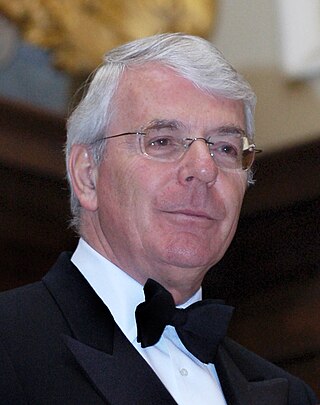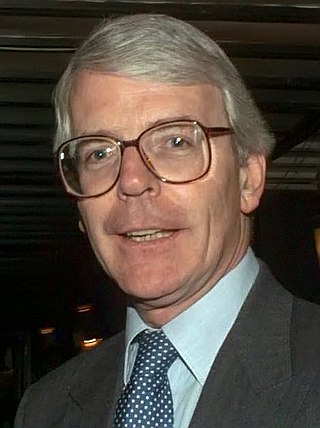
The 1970 Prime Minister's Resignation Honours were officially announced in the London Gazette of 7 August 1970 and marked the June 1970 electoral defeat of the Prime Minister, Harold Wilson. [1]

The 1970 Prime Minister's Resignation Honours were officially announced in the London Gazette of 7 August 1970 and marked the June 1970 electoral defeat of the Prime Minister, Harold Wilson. [1]

James Harold Wilson, Baron Wilson of Rievaulx, was a British statesman and Labour Party politician who served as Prime Minister of the United Kingdom twice, from October 1964 to June 1970 and again from March 1974 to April 1976. He was the Leader of the Labour Party from 1963 to 1976, and was a Member of Parliament (MP) from 1945 to 1983. Wilson is the only Labour leader to have formed administrations following four general elections.

The secretary of state for work and pensions, also referred to as the work and pensions secretary, is a secretary of state in the Government of the United Kingdom, with overall responsibility for the business of the Department for Work and Pensions. The incumbent is a member of the Cabinet of the United Kingdom.

George Alfred George-Brown, Baron George-Brown,, was a British Labour Party politician who served as Deputy Leader of the Labour Party from 1960 to 1970 and held several Cabinet roles under Prime Minister Harold Wilson, including Foreign Secretary and First Secretary of State.
The Ministry of Technology was a department of the government of the United Kingdom, sometimes abbreviated as "MinTech". The Ministry of Technology was established by the incoming government of Harold Wilson in October 1964 as part of Wilson's ambition to modernise the state for what he perceived to be the needs of the 1960s. The pledge was included in the Labour Party's 1964 general election manifesto: "A Labour Government will .. [set] up a Ministry of Technology to guide and stimulate a major national effort to bring advanced technology and new processes into the industry."
Harold Davies, Baron Davies of Leek, PC was a British Labour Party politician.

The 1945 Prime Minister's Resignation Honours were announced on 14 August 1945 to mark the resignation of the Prime Minister, Winston Churchill, following the success of the Labour Party in the 1945 General Election.
The 1966 Dissolution Honours List was issued on 19 May 1966 following the dissolution of the United Kingdom parliament in preparation for a general election.

The 1992 Dissolution Honours List was gazetted on 5 June 1992 following the advice of the Prime Minister, John Major.

The 1997 Dissolution Honours List was gazetted on 18 April 1997 following the advice of the outgoing Prime Minister, John Major. The only honours in this list were 21 life peerages.

The 1983 Dissolution Honours List was gazetted on 21 July 1983 following the advice of the Prime Minister, Margaret Thatcher.

The 1987 Dissolution Honours List was gazetted on 30 July 1987 following the advice of the Prime Minister, Margaret Thatcher.

The 2005 Dissolution Honours List was issued after the General Election of the same year on the advice of the Prime Minister, Tony Blair.
The February 1974 Dissolution Honours List was issued on 2 April 1974 following the dissolution of the United Kingdom parliament in preparation for a general election.
The October 1974 Dissolution Honours List was issued on 5 December 1974, following the dissolution of the United Kingdom parliament in preparation for a general election.
The 1970 Dissolution Honours List was issued on 2 June 1970 to mark the dissolution of the United Kingdom parliament prior to the 1970 general election.
The 1959 Dissolution Honours List was issued on 19 September 1959 to mark the dissolution of the United Kingdom parliament prior to the 1959 general election.
The 1964 Dissolution Honours were officially announced on 27 November 1964 and marked the dissolution of parliament following the 1964 General Election.
The 1979 Dissolution Honours List was issued in June 1979 following the general election of that year.

The 2019 Prime Minister's Resignation Honours are honours awarded following the July 2019 resignation of the Prime Minister, Theresa May. The life peerages and other honours were issued as two separate lists by the Cabinet Office on 10 September 2019, while the honours were gazetted as one list on 28 October 2019.

The Minister of Defence for the Royal Navy was a senior ministerial appointment of the British Government established in April 1964. The office holder was the ministerial head of the Navy Department of the Ministry of Defence, and reported to the Secretary of State for Defence.